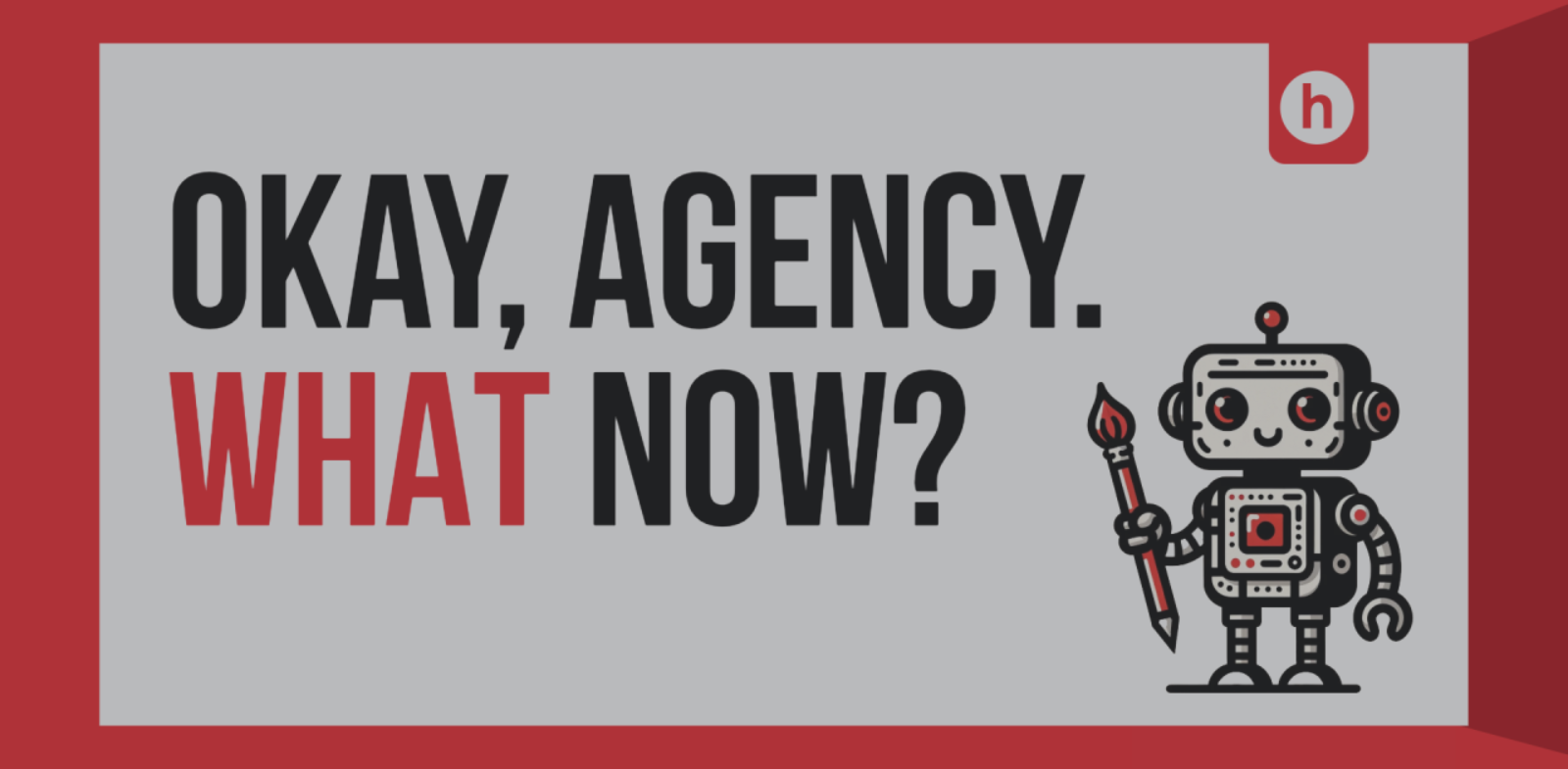
First Published: 10 May, 2024
I love working in agency. Always have. It’s dynamic, creative, challenging, exciting, and the only job outside of politics where you can make stuff up for money.
But the agency world is changing. Fast. Better access to data and tech has changed the way we sell stuff. Channels have exploded – and efficiency can trump excellence in the pace of ‘always-on’. Add in some robots to bash out words and pictures and the agency of tomorrow needs to reset the playbook.
The question is how? And it’s complicated. But if you look past the boring stuff of swapping time for money, there’s massive opportunity in sticking to our knitting and doing what agencies do best. Here are three things we think matter most.
In the always-on arms race of buttons and banners, the juicy questions of who, what and why can easily get trampled in the stampede to when, where and how.
That’s the what game - and anyone can do it. It’s easy to wrangle words or shuffle stockshots (and robots do it super-fast). But it’s clarity, empathy and insight that’s hard to deliver – and impossible if you don’t ask why.
It’s also where the value is. While there’s incremental value in the specialist craft of words and pictures, there’s exponential value in the insight delivered by why.
Almost anyone can craft a better what. The win is in the why.
When you boil it down, our only job is to use what we know about people to persuade them to buy more stuff. So the more we know about humans, the better the result.
And these days, we know stacks. Since the internet invented Ted Talks, everyone has access to the world’s most brilliant thinkers. The psychologists, the sociologists, the behavioural economists and Simon Sinek.
We clearly know why most people do stuff (and why they won’t). So we can use that to make the work better. But only when we dig past “customer” to find the human. Because ‘customers’ aren’t real, they’re just data points in a dashboard. And no human anywhere has a deep brand connection with a yoghurt – just ask your cat.
Great work comes from knowing how people tick. Better work happens when you fall in love with the humans.
This is essential. The robots are here and they’re here to stay. Yes, it’s scary at first, but if you get over it and get on with it, they’re pretty bloody clever.
Like any self-respecting creative I started out listing stuff that robots can’t do. But the gold is in mining the stuff that they can. Good robots can do the grunt work of connecting dots and shaping ideas in seconds. So why wouldn’t we make them our friends?
The secret is Robot Sandwich. Any robot output is only as good as the inputs they get and a cuddle on on the way out. In the old days we'd call this brief writing and creative direction. It’s that thinking stuff that adds the value. Like always.
Robots are great if you cuddle them. But 'own the robot', don’t be a robot.
There's a whole bunch boring stuff we also need to think about. Like money and deals and who works with who. It’s a brave new world and the old rules don’t apply.
But the fun stuff is obvious. And it’s all about the work. Which makes sense. Because our only real job is to use what we know about humans (and craft) to get people buy stuff. Just like the old days.
So if you’re an agency feeling like a possum in the headlights, scrape back the noise and focus on your value. Play the why game, love the human and take the time to own the robot – and soon you'll feel like you’re doing what agencies were invented to do.
That’s what I reckon, what do you think?

Contact us if you have any suggestions on resources you would like to see more of, or if you have something you think would benefit our members.
Get in TouchSign up to receive updates on events, training and more from the MA.
